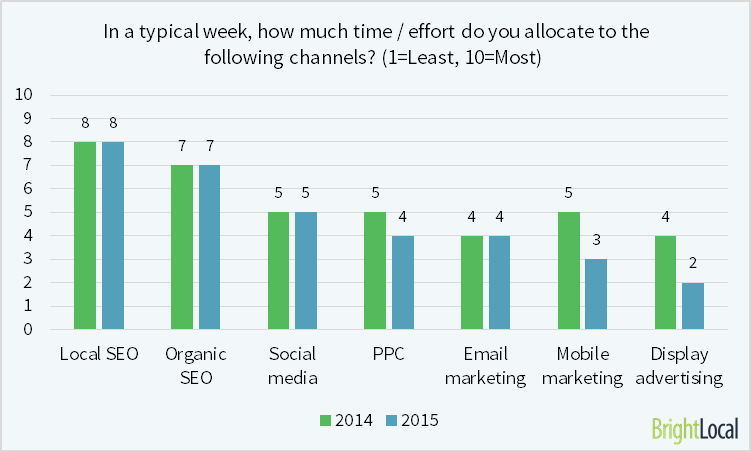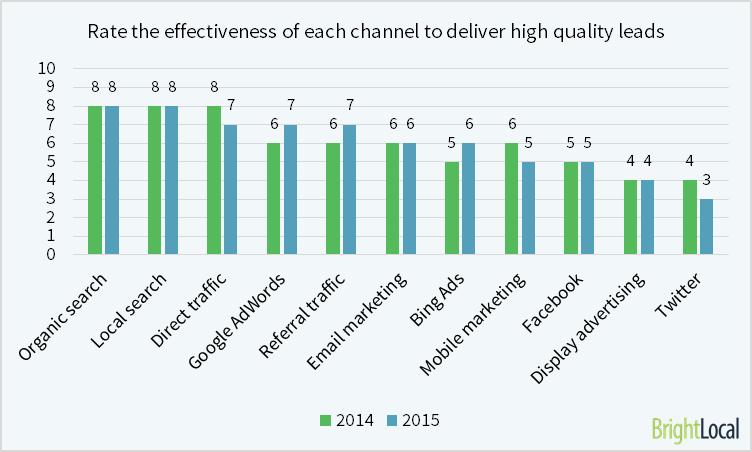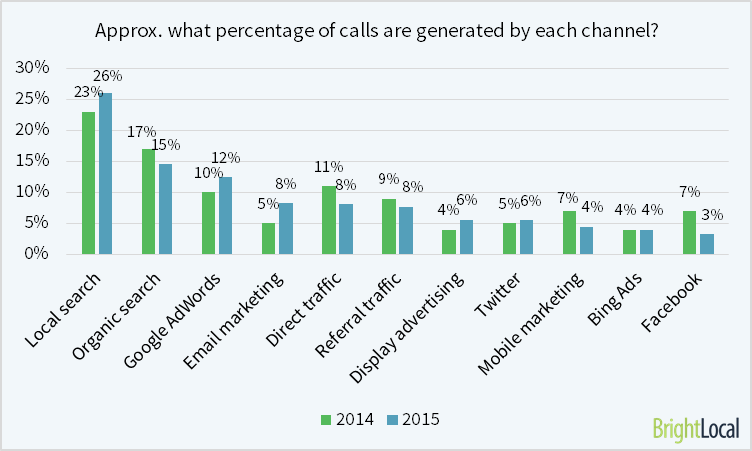It appears that people are not only turning to online reviews for local businesses more and more, but they are actually trusting them more than ever despite all the media coverage questioning their legitimacy.
If people are trusting what they read about businesses online more, do you view this as a good thing or bad thing? Let us know in the comments.
BrightLocal recently put out the results of its 4th annual Local Consumer Review Survey, finding that for better or worse, online reviews are only gaining momentum with consumers.
Most (57%) of consumers have searched online for a local business over 6 times in the past year, while 39% have searched online for local businesses at least one time per month, and 15% searching almost every day.

“Consumers are becoming more comfortable using the internet to find businesses on both PC & mobile,” says Myles Anderson, BrightLocal’s CEO. There are more & better services for locating businesses which make it faster, easier & better for consumers. It’s habit forming and they start to use it with increasing regularity.”
“Part of this growth can be attributed to more local businesses building & improving their online presence,” he adds. “Local data is more abundant & increasingly accurate which delivers better experience for consumers – i.e. they have a great selection of businesses to consider with lots of information to make in informed decision.”
The survey found that more people are searching for more types of businesses this year than last year. Restaurants and cafes are still the biggest category, but as people seek out more types of businesses, the percentage is down.

88% of those surveyed said they have read reviews to determine the quality of a local business (up from 85% in 2013). 39% read reviews on a regular basis. Only 12% don’t read reviews, down from 15% last year.
One of the more interesting takeaways from the findings are that consumers appear to be doing their homework on businesses, and reading a significant number of reviews before deciding whether or not to trust them. 67% say they read up to 6 reviews. 85% say they read up to 10. 7% say they read over 20. That last percentage may be small, but it’s up from 2% last year.
“The significance of these stats is that it sets a benchmark for the number of positive reviews that they need,” says Anderson. “With 85% of consumers reading 10 or less reviews then we need to ensure that we have at least 10 reviews to satisfy them, but more importantly that the most recent 10 reviews are all positive. If your most recent reviews are negative in sentiment & rating then most consumers won’t look beyond these to the better ones that may lie further down the page. It’s important to ‘manage’ out bad reviews and focus on generating regular, fresh, positive reviews.”
92% of users will use a local business if it has a 4 star (out of 5) rating. 72% will us one that has a 3 star rating. 27% will use one that has a 2 star rating, and only 13% will use one that has a 1 star rating.
72% say that positive reviews make them trust a local business more, which is one percentage point lower than last year. 10% say they don’t take any notice of online reviews.
Here’s perhaps the most interesting finding of all: 88% say they trust online reviews as much as personal recommendations. That’s actually up from 79% last year. Think about that for a minute. Most people trust random online reviews from people they don’t know or have any real evidence of the legitimacy of the review just as much as a recommendation from someone they know. Only 13% said they don’t trust reviews as much as personal recommendations.

That’s good news for Yelp, who’s been constantly battling fake reviews.
Anderson says local consumers are trusting online review more than ever before.
57% said they will visit a local business’ website after reading a positive review, and 72% said they will take some sort of action.
Reliability was found to be the most important “reputation trait” that consumers look for in online reviews – more so than expertise, professionalism, good value, accreditations, friendliness, courtesy, or localness.
Based on the survey’s findings, people are far more likely to recommend a local business via Facebook than via Yelp, though good old fashioned word of mouth is still on top.
One more interesting finding that highlights another problem of Yelp’s is that 9% of people will recommend a business if asked to by the business. By asking for a review, Anderson notes, one in ten people will be more inclined to give you one. Yelp forbids this practice, though it might not be so easy for the company to police when the reviews aren’t coming from the same IP address (which seems to be its main way of detecting this).
Is a review left by a consumer who was asked to do so by a business less legitimate than any other review? Share your thoughts in the comments.
[Via MarketingCharts]
Images via BrightLocal
















